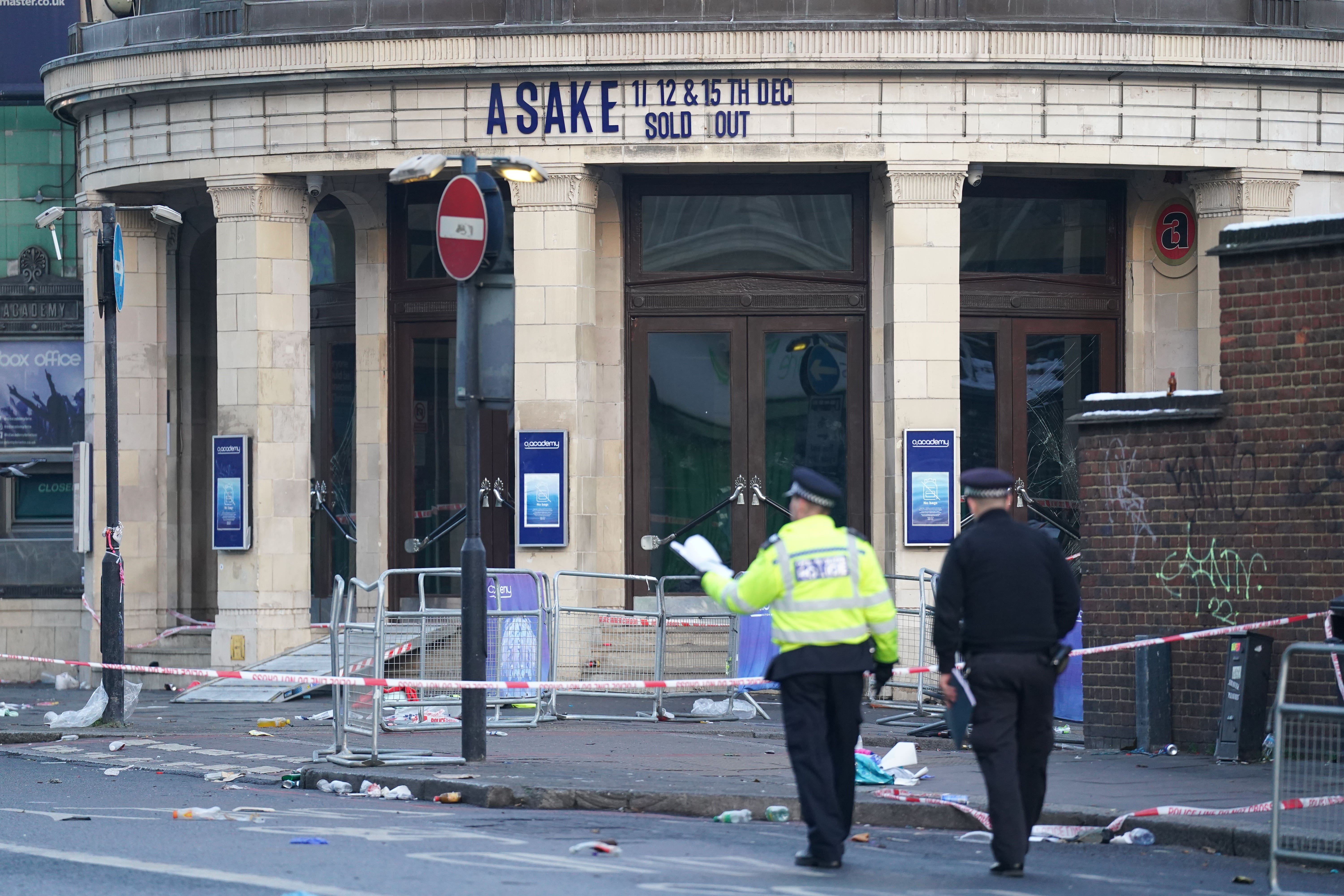The fate of live music in Britain rests with the Brixton Academy
The legendary south London music venue remains shuttered a year after a crowd crush that killed two people. Time to reopen it, says James Moore


It’s been a year since the Brixton Academy – the south London music venue to which the word “legendary” is often attached, with good reason – was closed after an appalling tragedy.
Rebecca Ikumelo, 33, and security guard Gaby Hutchinson, 23, died after a crowd crush at the doors during a gig by the Nigerian artist, Asake. Twelve months on, a 22-year-old woman remains in hospital in a serious condition.
I used to be a regular at the venue. As a disabled gig-goer, there’s a certain level of anxiety associated with going to a concert; I’ve also suffered a high degree of claustrophobia since being crushed by a lorry. There are certain venues I automatically think twice about when I see shows advertised. But the Academy was neverone of them.
The experiences I’d had there were never anything other than positive, the staff on the viewing platform particularly good.
Nonetheless, something clearly went badly wrong on December 15, 2022. A number of people appeared to enter without tickets. Questions were subsequently raised about the security, staffing levels, the strength of the venue’s doors, and the level of medical cover on hand.
Going to a gig should be a joyous, life-affirming experience. It usually is. It shouldn’tcarry the risk of injury, let alone of death. People should exit with a smile, not by ambulance.
So, the venue and its owners have work to do. They have a lot to prove. But, in consultation with the authorities, they should be allowed to do that work, as has been the case on several previous occasions.
The Manchester Arena springs to mind where the terrorist attack at an Ariana Grande show took place in 2017.
Operator SMG applied to revamp its operations schedule at the venue, after 22 people were killed there in 2021. The local council said it needed to show the Manchester Arena Inquiry’s findings were “demonstrably addressed”. SMG said it would work with the authorities. It did so, and the objections of licensing officials and Manchester Police were dealt with.
That is how it should be done.
It matters that similar efforts are made in Brixton. It matters to the local economy, which is losing hundreds of thousands of pounds per week in lost revenue at a time when the hospitality industry is still struggling to recover from the impact of the pandemic, not to mention surging costs and the effect of the cost-of-living crisis on customers. The Night Time Industries Association tells me some local businesses are on the verge of closure.
Equally as troubling is the loss of a cultural resource. The 5,000-capacity Academy fills an important niche, catering for popular acts that can’t quite fill an arena. Smaller bands can get a taste of playing at a prestige venue by serving as support acts.
If it is lost, it might never be replaced. The number of live venues in Britain has been in steady decline, depriving its buoyant music industry of a means of developing and showcasing talent. Last month, the Mayor of London, Sadiq Khan, turned down an application to bring a Las Vegas ‘Sphere’, which would seat 22,000, to Stratford.
The situation is grim. Once a venue is closed, it is highly unlikely to be replaced. I remember a couple of years ago speaking to Ryan Smith, the leader singer of Bdrmm, a rising indie band, about the loss of two of Hull’s venues. One of them – the Welly – was ultimately saved. Smith described its rescue as “so important”. He was a regular there when he was young. It shaped his taste. It helped create a band which produced an album described as “a modern shoegaze” classic when released through Sonic Cathedral.
Small wonder that a diverse array of artists, including the Chemical Brothers, Skunk Anansie, Garbage, Primal Scream, Blur and the Prodigy, have backed the campaign to save the Academy, which they have described as an “essential” London venue. It is. A petition attracted 110,000 signatures. Lambeth Council has received more than 20,000 representations from the public.
There is also an inclusion issue here. It would sadden me greatly, as a disabled lover of live music, to see the loss of a venue that has always made me feel welcome. I have no doubt others feel the same way.
By all means, hold Academy Music Group’s feet to the fire. But we too often in Britain resort to break and ban when we should instead look to repair and reform. This is a prime example.






Join our commenting forum
Join thought-provoking conversations, follow other Independent readers and see their replies
Comments